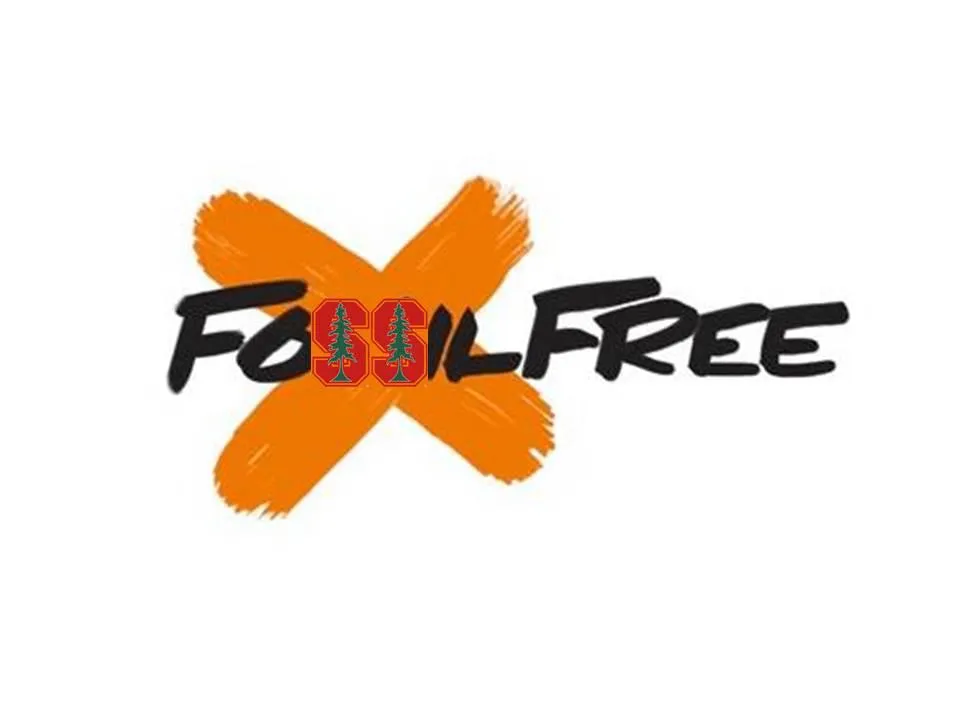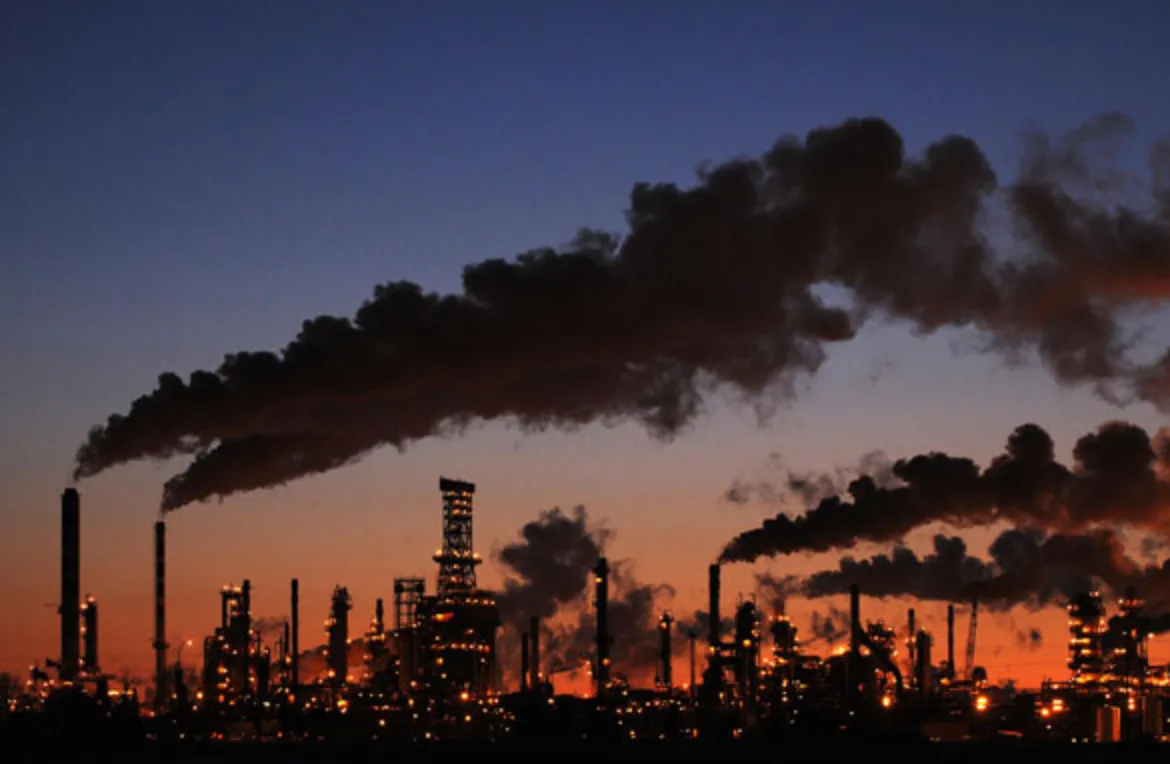Table of Contents
Last month, over 300 tenured Stanford faculty joined Fossil Free Stanford and more than 3,000 Stanford community members to call on the university to divest from all fossil fuels. Their call to action recognizes a diverse set of reasons to move beyond coal, oil, and natural gas. With the financial and human costs of climate change already materializing and renewable energy technologies rapidly becoming viable substitutes, fossil fuels have become an unsustainably costly and harmful source of energy.
Fossil fuel divestment is a calculated response to the fact that fossil fuel combustion is detrimental to human well-being. Indeed, it is in the moral and financial interest of Stanford University to move beyond all fossil fuels.
In a recent Stanford Review piece, Alistair Herron disagrees and claims that Fossil Free Stanford relies on an “over-simplified narrative.” As members of FFS, we would like to respond and clarify the nuances of our position. Herron argues that FFS ignores the benefits of material products of petroleum like fertilizer, plastics, and some medicine. This is untrue. FFS recognizes the benefits of these physical products. Yet by directing our attention towards these products, Herron glosses over and incorrectly assesses the costs of burning fossil fuels—the main use of fossil fuels and the target of FFS’s campaign.
Climate change, which has been directly tied to fossil fuel combustion, is a major contributor of these costs. Climate change is one of the most severe crises facing humanity today. The terrible human and environmental impacts of climate change are already felt. California’s current record drought—which Stanford researchers have tied to climate change—cost this state’s economy $2.2 billion and 17,000 jobs in 2014 alone. On a global scale, the World Health Organization estimates that climate change already causes more than 150,000 deaths every year. These numbers are an indication of more disastrous climate costs that will likely arise.
Indeed, climate change is poised to become one of the greatest market failures in history—a case of unaccounted negative externalities straight out of Econ 1. Take these externalities into account (such as through the “social cost of carbon”), and the cost of fossil fuel combustion becomes unacceptably high.
What about the benefits of fossil fuel combustion, which Herron glowingly touts? Fossil fuels certainly played a critical role in the tremendous development of the last 150 years. However, as Herron points out, the true source of this growth was not fossil fuels themselves, but higher energy usage in general. Although in the past fossil fuels were the most efficient energy source, we are moving into an age where this is no longer the case.
Renewable technologies like solar and wind energy are growing cheaper, faster. In fact, wind energy has achieved in many regions already reached cost parity with fossil fuels, and solar is quickly catching up. Transitioning to renewable energy will allow us to continue enjoying the benefits of energy production while reducing the costs of burning fossil fuels.
Certainly, to substantially mitigate the high human costs of climate change, we will have to dramatically transform our energy system. But many economic analyses have studied the gains from transitioning to a low-carbon economy, and overwhelmingly find that the benefits outweigh the costs. The benefits include not only avoided climate change damages, but also new jobs and increased prosperity from a more innovative and truly modern clean energy economy.
Moving away from fossil fuels, then, is a rational economic decision. In addition, divesting from fossil fuels is a good financial move for Stanford to make.
As renewable technologies replace fossil fuels en masse, the fossil fuel industry’s value will only go down. If our global society is to avoid disastrous climate change, the majority of the fossil fuel industry’s reserves is unburnable, and will become stranded assets. And even today we are experiencing the violent swings in the industry’s financial value, with oil prices down almost 50% from just 6 months ago—perhaps in part because OPEC is adjusting to a deflating carbon bubble.
With little transparency to Stanford’s endowment, we don’t know exactly how much this crash cost us, but one can imagine that Stanford would have significantly avoided this shock if it had divested from oil and gas last May along with coal.
If Stanford continues to invest in the fossil fuel industry, it is betting that fossil fuels are here to stay. And that will mean disastrous climate change, massive economic costs, millions dead, millions more displaced. We, for one, don’t think this is a smart bet for Stanford to make. And if this is the disastrous future that comes to bear, the very last thing we’ll be thinking is, “I’m so glad my university invested in the fuels causing this destruction.”
Fossil fuel divestment is a smart financial decision. But above all, we believe it’s the morally right thing to do—and we are not alone. The now 372 Stanford faculty that that have signed a letter addressed to President Hennessy and the Board of Trustees calling for full fossil fuel divestment include climate scientists, clean energy engineers, political scientists, ethicists, and historians. Former Stanford president Donald Kennedy, Nobel Prize winners Professor Douglas Osheroff (Physics, 1996) and Professor Roger Kornberg (Chemistry, 2006), and Fields Medal winner Professor Maryam Mirzakhani are all among the signatories.
All of these professors agree: “When it comes to the future our students will live to see, there is a scientifically documented, morally clear, technologically innovative *right thing to do: *divest from fossil fuels and reinvest in a sustainable future.”
This piece was written by the following Stanford students:
Charlie Jiang, ‘16, is a B.S. candidate in Engineering Physics
Sophie Harrison, ‘16, is a B.A. candidate in Economics
Dan Sakaguchi, ‘16, is a B.A. candidate in Philosophy
Shane Johnson, ‘16, is a B.S. candidate in Engineering Physics
Josh Lappen, ‘17, is a B.A. candidate in Classics






